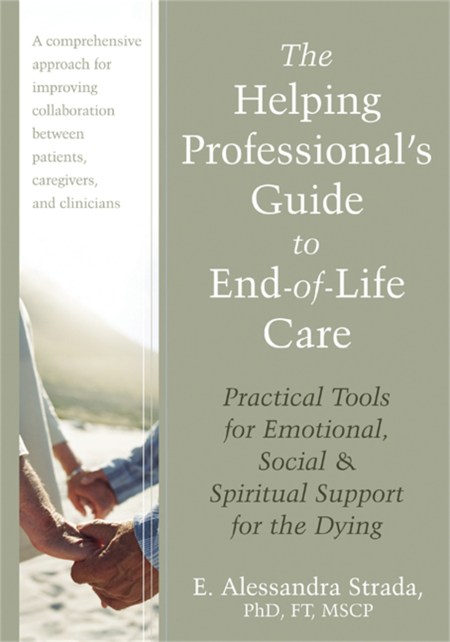The Helping Professional’s Guide to End-of-Life Care
On sale
21st February 2013
Price: £39.99
Genre
Selected:
Paperback / ISBN-13: 9781608821990
Nearly half of people at the end of life will receive hospice care, but few psychologists, nurses, physicians, chaplains, and hospice workers have been trained specifically to recognize and address the psychological, social, and emotional issues that may arise in patients who are dying. Patients in the midst of advanced terminal illness may experience a variety of distressing emotions, and may feel anxious, frightened, regretful, or desperate. This guide was created specifically to guide helping professionals of all kinds through the process of working through patients’ psychological issues to allow them peace and comfort in their final moments.
The Helping Professional’s Guide to End of Life Care clarifies the spiritual and emotional care that patients need and presents an evidence based approach integrating cognitive behavioral therapy (CBT), transpersonal psychotherapy, hypnosis, mindfulness, and guided imagery to help patients manage emotional distress at the end of life. Through case conceptualizations and detailed treatment planning guidance, readers learn to formulate comprehensive assessment and treatment plans for patients and gain skills that will help them manage the emotional intensity of this work.
This secular, professional treatment model can be applied to patients of any religious or spiritual background. The book also addresses integrating the patient’s therapeutic team with the medical team, addressing the emotional needs of friends and family of the dying, crisis intervention for suicidal patients, working with clients on psychotropic medications, and how helping professionals can manage their own emotions to become more effective clinicians.
The Helping Professional’s Guide to End of Life Care clarifies the spiritual and emotional care that patients need and presents an evidence based approach integrating cognitive behavioral therapy (CBT), transpersonal psychotherapy, hypnosis, mindfulness, and guided imagery to help patients manage emotional distress at the end of life. Through case conceptualizations and detailed treatment planning guidance, readers learn to formulate comprehensive assessment and treatment plans for patients and gain skills that will help them manage the emotional intensity of this work.
This secular, professional treatment model can be applied to patients of any religious or spiritual background. The book also addresses integrating the patient’s therapeutic team with the medical team, addressing the emotional needs of friends and family of the dying, crisis intervention for suicidal patients, working with clients on psychotropic medications, and how helping professionals can manage their own emotions to become more effective clinicians.
Newsletter Signup
By clicking ‘Sign Up,’ I acknowledge that I have read and agree to Hachette Book Group’s Privacy Policy and Terms of Use

